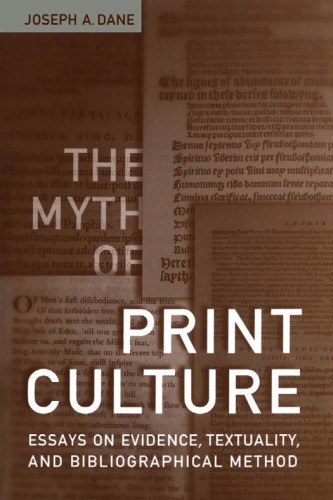

Most ebook files are in PDF format, so you can easily read them using various software such as Foxit Reader or directly on the Google Chrome browser.
Some ebook files are released by publishers in other formats such as .awz, .mobi, .epub, .fb2, etc. You may need to install specific software to read these formats on mobile/PC, such as Calibre.
Please read the tutorial at this link: https://ebookbell.com/faq
We offer FREE conversion to the popular formats you request; however, this may take some time. Therefore, right after payment, please email us, and we will try to provide the service as quickly as possible.
For some exceptional file formats or broken links (if any), please refrain from opening any disputes. Instead, email us first, and we will try to assist within a maximum of 6 hours.
EbookBell Team

5.0
40 reviewsThe individual studies in the book focus on a range of problems: basic definitions of what a book is; statistical assumptions; and editorial methods used to define and collate the presumably basic unit of 'variant.' This work differs from other recent studies in print culture in its emphasis on fifteenth-century books and its insistence that the problems encountered in that historical milieu (problems as basic as cataloguing errors) are the same as problems encountered in other areas of literary criticism. The difficulties in the simplest of cataloguing decisions, argues Joseph Dane, tend to repeat themselves at all levels of bibliographical, editorial, and literary history.